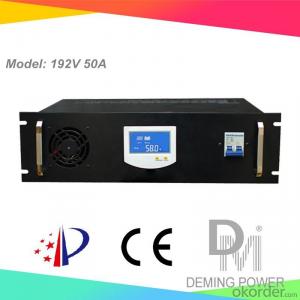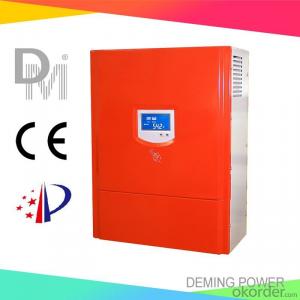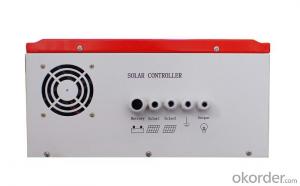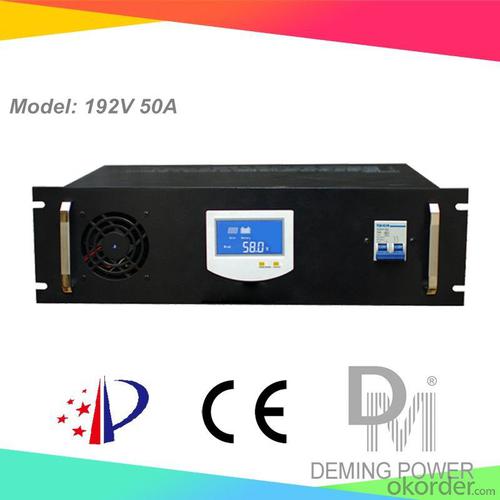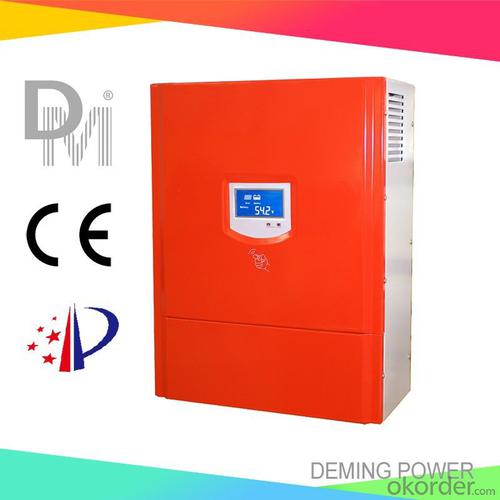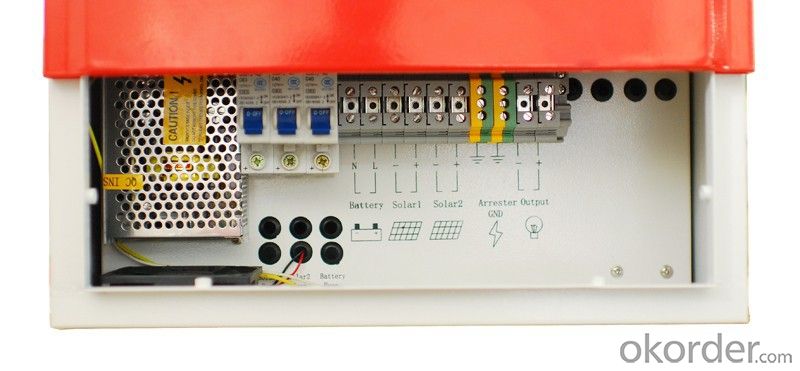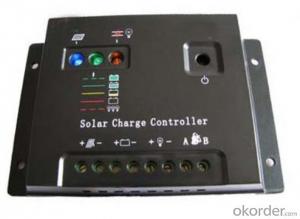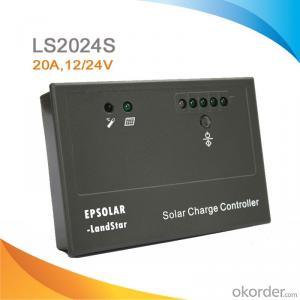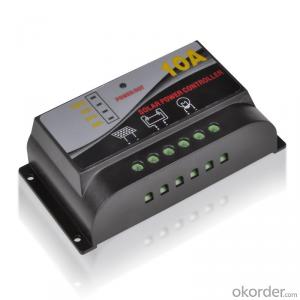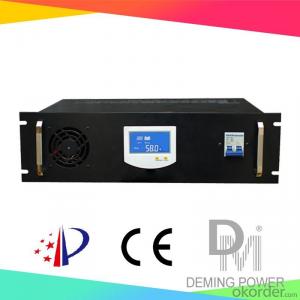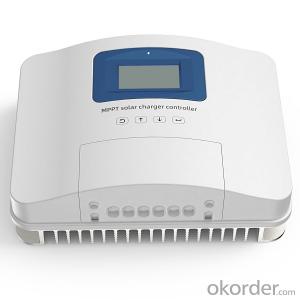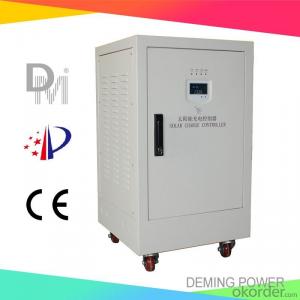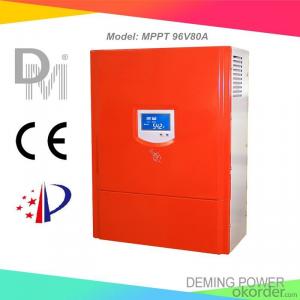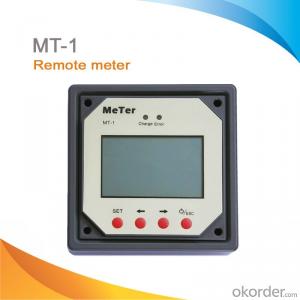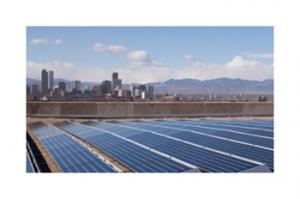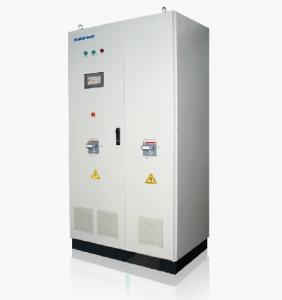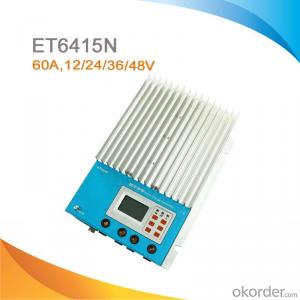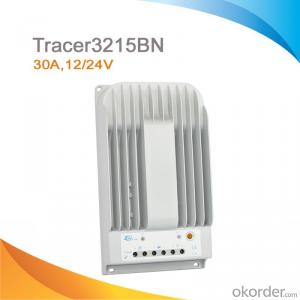MPPT Solar Charge Controller 192V 50A for off grid solar power system and RS485 available
- Loading Port:
- Qingdao
- Payment Terms:
- TT OR LC
- Min Order Qty:
- 1 PCS
- Supply Capability:
- 1000 PCS/month
OKorder Service Pledge
OKorder Financial Service
You Might Also Like
Properties of the solar charge controller
1. Design for off-grid solar power system.
2. Applicable to different kinds of batteries.
3. Adopts MPPT technology (Maximum Power Point Tracking). The advanced tracking algorithm make the solar module operate at ideal voltage which the solar modules can produce the maximum available power.
4. Modular design with simple structure and easy maintenance.
5. Automatic power control function.
6. LCD display: Solar panel current, solar panel voltage, solar panel power, battery group voltage, charge current.
7. Perfect protection function: Solar reverse charge protection, Solar reverse connection protection, Battery reverse connection protection, Battery overcharge protection, Battery over current protection etc ,thus the system has higher reliability.
Technical parameters of the solar charge controller
Model | 192V50A | ||
Battery group rated voltage | 192Vdc | ||
PV Rated current | 50A | ||
PV open circuit voltage | 500V | ||
PV Max. power | 9600Wp | ||
MPPT input DC voltage range | 150-240Vdc | ||
Input PV module road number | 1 | ||
Function | MPPT charge mode, auto stop charge, auto recharge voltage; Protection: connecting contrary, over current, short circuit, over heat etc. | ||
Display mode | LCD | ||
Display content | solar panel voltage, solar panel current, solar panel power, battery voltage, charge current | ||
Floating Charge Voltage (adjustable) | 110Vdc | ||
Stop charge voltage | 116Vdc±1% | ||
Recharge voltage | 108V±1% | ||
Voltage drop between PV and battery | 1.5V | ||
Max itself power consumption | 100mA-150mA | ||
Work environment temperature | -30-60°C | ||
Relative humidity | 90% No condensation | ||
Applicable altitude | 3000m The rated power should be reduced when it is higher than 2000m | ||
Noise (1m) | 40dB | ||
Degree of protection | IP20(Indoor) | ||
Cooling method | Forced air cooling | ||
*Communication interface (optional) | RS485/USB | ||
*Temperature compensation(optional) | -4mv/°C/2V,-35°C~+80°C,Accuracy:±1°C | ||
Product size (mm) | 520*430*200mm, (Black one) 480*360*150mm, (Red one) | ||
Weight(kg) | 12Kg(Black one) 14kg(Red one) | ||
*Above parameter only for reference. Could be custom made to user specifications.
- Q: Can a solar controller be used with solar-powered waste management systems?
- Yes, a solar controller can be used with solar-powered waste management systems. A solar controller is an essential component of a solar power system that regulates the voltage and current levels of the solar panels to ensure optimal charging and protection of the batteries. In the case of solar-powered waste management systems, the solar controller would play a crucial role in managing the charging process of the batteries that power the system. It would monitor the solar panels' output, control the flow of electricity to the batteries, prevent overcharging or deep discharging, and maximize the efficiency and lifespan of the batteries. This ensures that the waste management system operates reliably and efficiently, utilizing the solar energy effectively.
- Q: Can a solar controller be used in a solar-powered spacecraft propulsion system?
- Yes, a solar controller can be used in a solar-powered spacecraft propulsion system. A solar controller is responsible for regulating and optimizing the charging of batteries in a solar power system. In a solar-powered spacecraft propulsion system, solar panels collect energy from the sun and convert it into electrical power. This power is then stored in batteries, which can be used to power various systems, including the propulsion system. The solar controller ensures that the batteries are charged efficiently and protects them from overcharging or discharging.
- Q: Can a solar controller be used with different types of solar panel voltage regulators?
- Yes, a solar controller can be used with different types of solar panel voltage regulators. A solar controller, also known as a charge controller, is designed to regulate the charging process of a solar panel or array. It helps to prevent overcharging of batteries and protects them from damage. Solar panel voltage regulators, on the other hand, are devices that regulate the voltage output from the solar panels to make it suitable for charging batteries or for direct use in electrical appliances. Typically, solar controllers are compatible with different types of solar panel voltage regulators. They are designed to work with a wide range of solar panel systems and can handle different voltage and current ratings. However, it is important to ensure that the solar controller is compatible with the specific voltage regulator being used. Before connecting a solar controller to a solar panel voltage regulator, it is recommended to check the specifications and compatibility requirements of both devices. This will ensure that they are compatible and can work together effectively and safely. In summary, a solar controller can be used with different types of solar panel voltage regulators, but it is important to ensure compatibility between the two devices before installation.
- Q: Can a solar controller be used with solar-powered security cameras?
- Yes, a solar controller can be used with solar-powered security cameras. A solar controller helps regulate the power generated by the solar panels and ensures that the cameras receive a consistent power supply. This is crucial for the proper functioning of the security cameras and ensures uninterrupted surveillance.
- Q: Can a solar controller be used in conjunction with a power inverter?
- Yes, a solar controller can be used in conjunction with a power inverter. The solar controller is responsible for regulating the charging of batteries from solar panels, while a power inverter converts the DC power from the batteries into AC power for use in appliances. By using both devices together, solar energy can be efficiently stored and converted into usable electricity.
- Q: Can a solar controller be used in harsh weather conditions?
- Yes, a solar controller can be used in harsh weather conditions. Most solar controllers are designed to be weather-resistant and can withstand various environmental conditions such as extreme temperatures, rain, snow, and high winds. However, it is always recommended to check the specifications and guidelines provided by the manufacturer to ensure the controller is suitable for the specific harsh weather conditions it will be exposed to.
- Q: What is the lifespan of a solar controller?
- The lifespan of a solar controller can vary depending on various factors such as the quality of the controller, usage patterns, and environmental conditions. However, on average, a well-maintained and properly installed solar controller can last anywhere between 10 to 15 years.
- Q: Can a solar controller be used with a solar-powered gate opener?
- Yes, a solar controller can be used with a solar-powered gate opener. A solar controller helps regulate the charging and discharging of the battery connected to the solar panel. It ensures that the battery is properly charged and protected from overcharging or discharging, which is essential for the efficient functioning of a solar-powered gate opener.
- Q: Can a solar controller be used with solar-powered desalination plants?
- Yes, a solar controller can be used with solar-powered desalination plants. A solar controller is a device that regulates the flow of electricity from the solar panels to the desalination plant, ensuring optimal performance and preventing damage to the system. It helps manage the charging and discharging of batteries, controls the voltage, and protects against overcharging or over-discharging. By controlling the solar power generated, the solar controller ensures the efficient operation of the desalination plant, making it an essential component in such solar-powered systems.
- Q: Can a solar controller be used with solar panels that are connected to a power inverter?
- Solar panels that are connected to a power inverter can indeed be used with a solar controller. In fact, it is advisable to incorporate a solar controller in such configurations to guarantee appropriate charging and safeguard the batteries linked to the power inverter. The solar controller manages the voltage and current from the solar panels to the batteries, preventing excessive charging and discharging. Additionally, it aids in optimizing the charging process, thereby enhancing the overall efficiency of the solar power system. Consequently, utilizing a solar controller alongside a power inverter is a commendable approach to maximize the system's performance and lifespan.
Send your message to us
MPPT Solar Charge Controller 192V 50A for off grid solar power system and RS485 available
- Loading Port:
- Qingdao
- Payment Terms:
- TT OR LC
- Min Order Qty:
- 1 PCS
- Supply Capability:
- 1000 PCS/month
OKorder Service Pledge
OKorder Financial Service
Similar products
Hot products
Hot Searches
Related keywords
